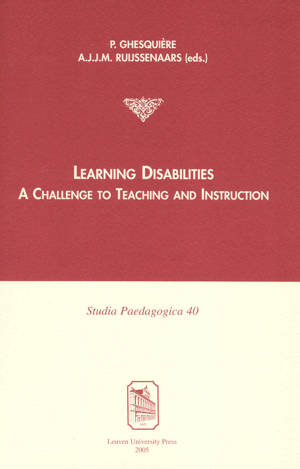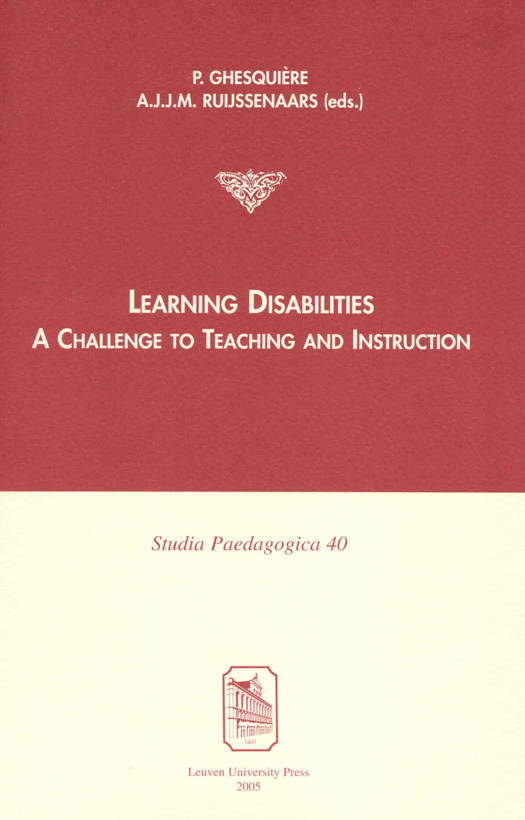
- Retrait gratuit dans votre magasin Club
- 7.000.000 titres dans notre catalogue
- Payer en toute sécurité
- Toujours un magasin près de chez vous
- Retrait gratuit dans votre magasin Club
- 7.000.0000 titres dans notre catalogue
- Payer en toute sécurité
- Toujours un magasin près de chez vous
Description
Research on learning disabilities has known a tremendous growth the last 25 years. Yet, despite the progress that is made in diverse domains, learning disabilities still stay a serious challenge to teaching and instruction. In this book the authors try to link original research findings on learning disabilities with instructional methods and teaching practices.The first part of the book brings together contributions about the cognitive, metacognitive and socio-emotional correlates of learning disabilities. These factors generally form a core aspect of the challenge of learning disabilities to teaching and instruction. The first three chapters concern the phenomenon of dyslexia. Van den Broeck critically evaluates the disputable role of intelligence in the concept and definition of dyslexia. Hutchinson, Whiteley and Smith explore the role of cognitive linguistic skills in the early identification of reading problems in emergent bilingual children. Van Ingelghem and colleagues study auditory temporal processing in children with dyslexia. In chapter 4 Desoete and Roeyers summarize their research on metacognition in children with mathematics learning disabilities. Finally, Gadeyne, Ghesqui?re and Onghena explore the relationship between academic achievement and behaviour problems.The second part of this book goes deeper into research on intervention and instruction methods. The first three chapters focus on reading problems. Whitely and her colleagues try to analyze why some children do not benefit from early, phonologically based interventions, leading to implications for the development of early screening tools and intervention schemes for these non-beneficiaries. Van Kraaenoord, Rohl and Rivalland report findings of an Australian study examining the programs and strategies used to teach and intervene in Australian classrooms for students with learning problems. Bouwer and Jordaan argue for the use of imaging as a learning support technique for children with dyslexia. The last two chapters explore the differential effect of direct and guided instruction for children with arithmetic learning problems. Kroesbergen and Van Luit focus on the acquisition and use of multiplication strategies. Milo and Ruijssenaars do the same for addition and subtraction up to 100.After reading this book, not all challenges of learning disabilities to teaching and instruction will be tackled. But it surely can offer some contribution in getting away from some of them. The authors hope it gives a lot of inspiration to the diverse audience we had in mind, practitioners as well as researchers of different disciplines.
Spécifications
Parties prenantes
- Auteur(s) :
- Editeur:
Contenu
- Nombre de pages :
- 200
- Langue:
- Anglais
- Collection :
Caractéristiques
- EAN:
- 9789058674449
- Date de parution :
- 15-02-08
- Format:
- Livre broché
- Format numérique:
- Trade paperback (VS)
- Dimensions :
- 156 mm x 234 mm
- Poids :
- 290 g

Les avis
Nous publions uniquement les avis qui respectent les conditions requises. Consultez nos conditions pour les avis.






